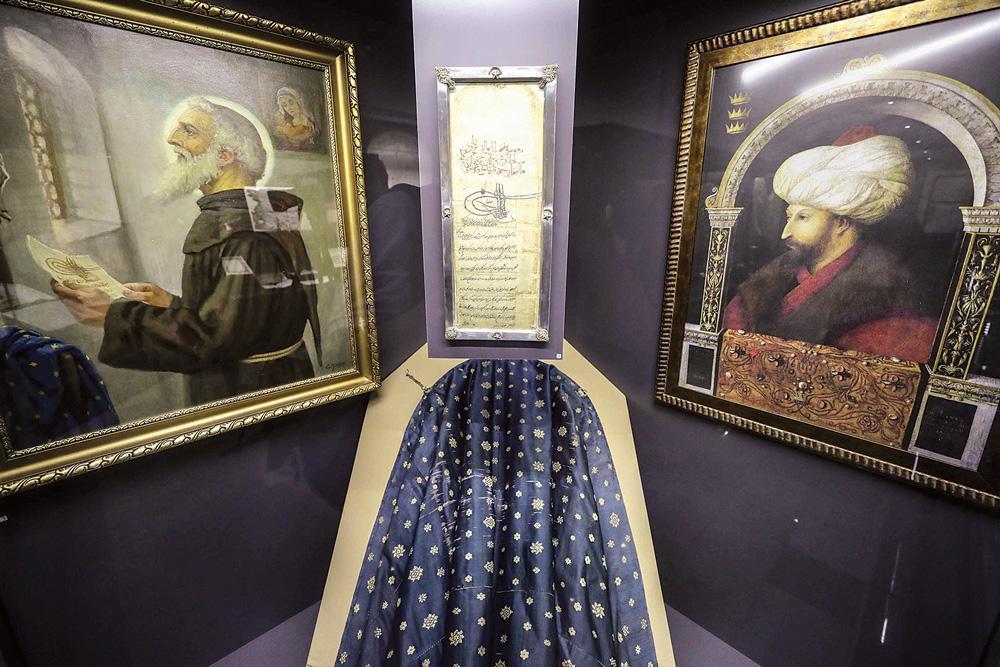Sultan’s edict kept at monastery for centuries
FOJNICA

The Ahdname (imperial edict) of Fojnica, which was issued by Ottoman Sultan Mehmed II the Conqueror to grant freedom to Bosnian Franciscans after his conquest of Bosnia Herzegovina, has been kept in a monastery for 555 years in Fojnica city in central Bosnia and Herzegovina.
Considered one of the oldest documents issued regarding human rights and freedoms, the Ahdname was presented to Franciscan priest Andjeo Zvizdovic on May 28, 1473 and granted some rights and freedoms to the Franciscans, as well as the freedom of worship.
The 555-year-old Ahdname has been protected by religious people in the Catholic Monastery, which is built on a high hill in Fojnica.
The Ahdname is being kept in a special section in the monastery’s museum without any damage in the country, which saw many wars after the Ottomans left the region and remained under the administration of various countries.
The document, which provided extensive protection to Bosnian Franciscans, is also displayed in the museum as a document of tolerance of the Ottomans towards other religions and cultures.
Every year a large number of people from different countries and beliefs visit the museum to see the Ahdname. In the museum, the Ahdname is also printed on relief paper so that the visually impaired can read it.
The Ahdname was published 313 years before the United States Constitution of 1776, which is considered the first human rights document in history. It was 485 years before the Universal Declaration of Human Rights that was adopted by the United Nations in 1948 and 532 years before the Council of Europe Convention on the Protection of National Minorities in 1995. The Ahdname has the greatest importance in terms of human rights and freedoms.
Beginning of a better life
Speaking to state-run Anadolu Agency, the Monastery Museum Director Priest Janko Ljubos said they had protected the original Ahdname so far, which was presented to the high priest Zvizdovic five centuries ago by Sultan Mehmet the Conqueror, and then the Franciscans were able to stay in their dormitory and those who had left returned to the country.
“Thanks to the Ahdname, nobody could have disturbed the Franciscans, seized their belongings and killed them. After the Ahdname, they had a better life in Bosnia and Herzegovina,” said Ljubos, adding that the Ahdname provided many conveniences to Franciscans.
Ljubos said that the Ahdname was also a big factor for the Catholic Church’s survival in the region, and that when they had a problem with local authorities in the Ottoman era, they showed the sultan’s Ahdname to solve them.
Pointing out that the edict was a good example of living together, Ljubos added that it was a demonstration of the possibility of solving the problems between different religious beliefs through dialogue.
















